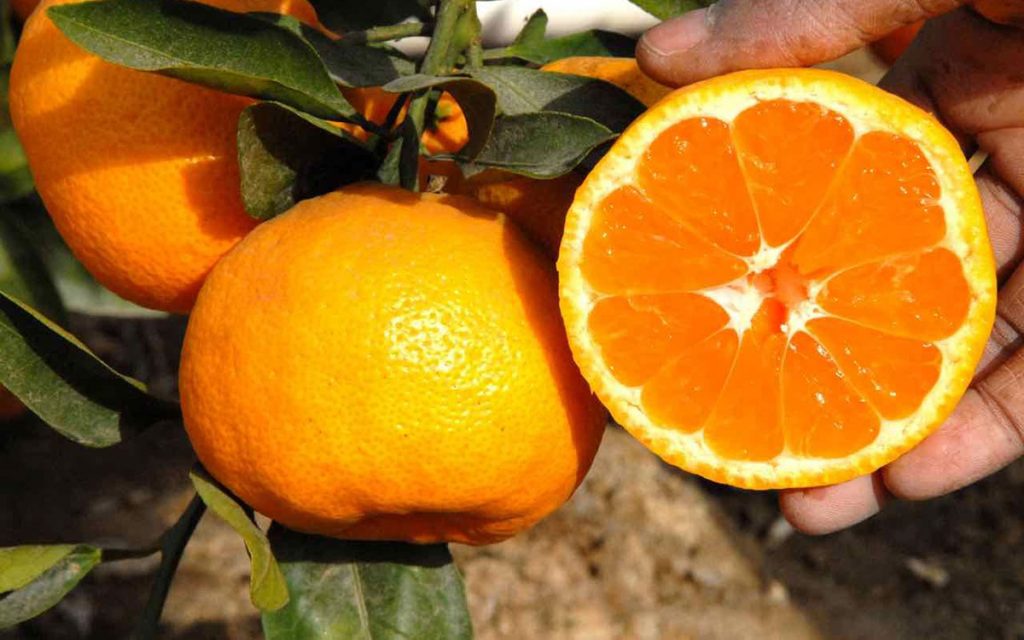
Available in our offer from November to February – check the offer

Available in our offer from November to February – check the offer
It is not entirely known where the tangerine name originated from. Most of us would probably be inclined to think that the word comes from the Mandarins, Chinese officials whose history is more than 1000 years old. This is one of the theories. The second is that the tangerine owes its name to the island of Mauritius in the Indian Ocean, once called Mandara.
A few tangerines are enough to cover the daily demand for vitamin C, which strengthens our immune system and protects against infections. What’s more, vitamin C is an antioxidant, a substance that fights an excess of carcinogenic free radicals.
Tangerines have a lot of vitamin A – grapefruit is the only citrus that has more of it. Vitamin A counteracts the formation of eye diseases, has a positive effect on the condition of the skin, bones and teeth. Tangerines also have B vitamins, folic acid, potassium, magnesium, manganese and calcium.